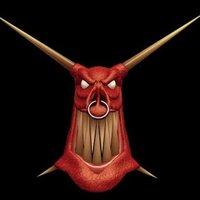There are usually two steps in collision detection: broad phase and narrow phase. The first one, broad phase, is basically going through the objects and creating "groups" of objects that might be colliding. In the narrow phase, each group is individually processed and the actual collisions are detected and resolved. The broad phase is really important, as it allows you to avoid N[sup]2[/sup] comparisons.
As for what broad phase algorithm to use... that depends. You could create a spatial hash (works pretty well if you fine tune it and have lots of objects all of about the same size), binary space partitioning (BSP) trees, sweep and prune, axis-aligned bounding box (AABB) trees, etc.
Bullet has a nice page on a couple of broad-phase algorithms.
I don't know what's easiest, but I've found dynamic AABB trees seems to work pretty well (which Chipmunk physics uses by default, albeit it's a little tweaked/fine tuned).








